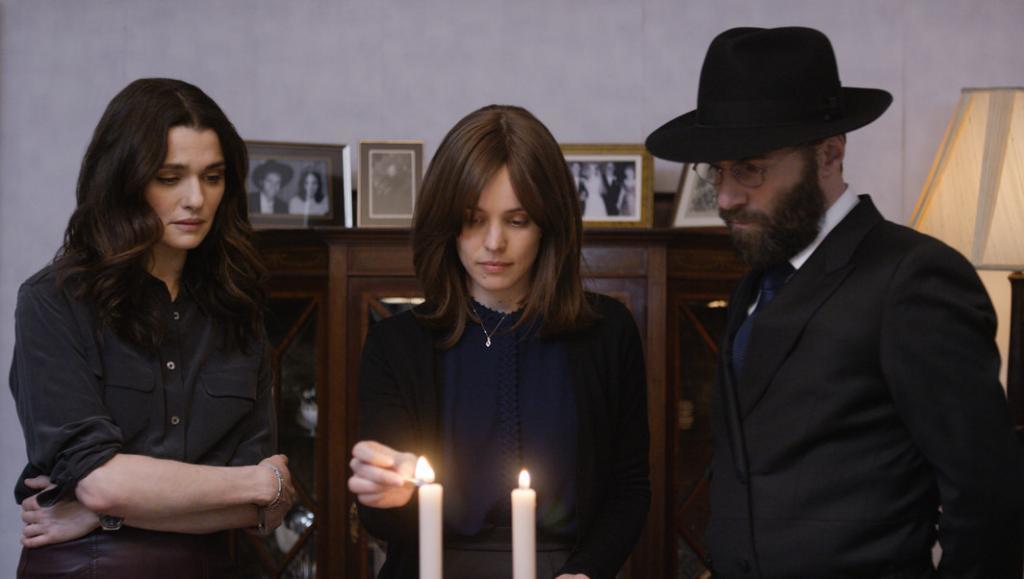Tribeca Film Festival 2018: Disobedience

Disobedience is Chilean director Sebastián Lelio’s first English language film. He’s the 2017 winner of Best Forieng Language Film (for A Fantastic Woman) so the film itself is really well done, visually and stylistically.
The film (based on the book by Naomi Alderman) begins with the death of a London Orthodox Jewish community’s Rav (Anton Lesser)–a super respected Rabbi–as he is preaching. His sole living family member is his estranged daughter Ronit (Rachel Weisz). Ronit left the community years ago and has been living in New York as a photographer. Feeling both guilt and grief–for not knowing he was ill so unable to help care for him in his final days and for never getting his forgiveness for leaving–Ronit returns home for the services.
Her old friend Dovid (Alessandro Nivola) hesitantly welcomes her home. He was a dedicated student of the Rav’s and is in line to become the next Rav. So much time has passed and a huge distance created between them that Ronit didn’t even know that Dovid got married…to their other childhood friend Esti (Rachel McAdams). As surprised at Ronit is at that turn of events, she takes it in stride, although it’s quite clear that there is more to their history than we know.
As the film goes on, we discover that as teenagers, Ronit and Esti has an illicit relationship. It’s one Ronit’s father found out about and one the entire community became aware of. Still in love with one another, the two women rekindle their physical relationship–for one night (their love scene is joyful and only slightly gratuitous)–all the while facing questions of community, faith, and the freedom of choice.
Disobedience captures that internal struggle incredibly well. The restrained nature of the Orthodox community is in the camera angles and the muted colors. The silent judgements are evident in each character that encounters Ronit. Esti’s strong faith in the only way of life she has ever known is in her practiced rituals and habits and the way those are showcased. Indeed, the music, too, mimics all of this quite wonderfully.
The one shortcoming is the balancing act between the three lead characters; the first half of the film feels very much like Ronit’s story, but the second half of the film feels very much like Esti and Dovid’s.
The three lead actors are wonderful. Their quiet longing for connection and understanding is expressed soulfully. The ability to choose–and the freedom that brings–doesn’t mean your choices are easy. the emotion behind those choices are beautifully performed by the actors. Alessandro Nivola is especially magnificent. The words he chooses to say may be calculated to fit the rigid expectations of their society, but you can see every vulnerable emotion and thought flicker through his eyes and body language. His explosive speech during the final funeral ceremony was enthralling to watch.
In short, Disobedience is sure to have a long life beyond the Tribeca Film Festival.
★ ★ ★ 1/2 out of 4
Photo Credit: Bleecker Street


Discussion about this post